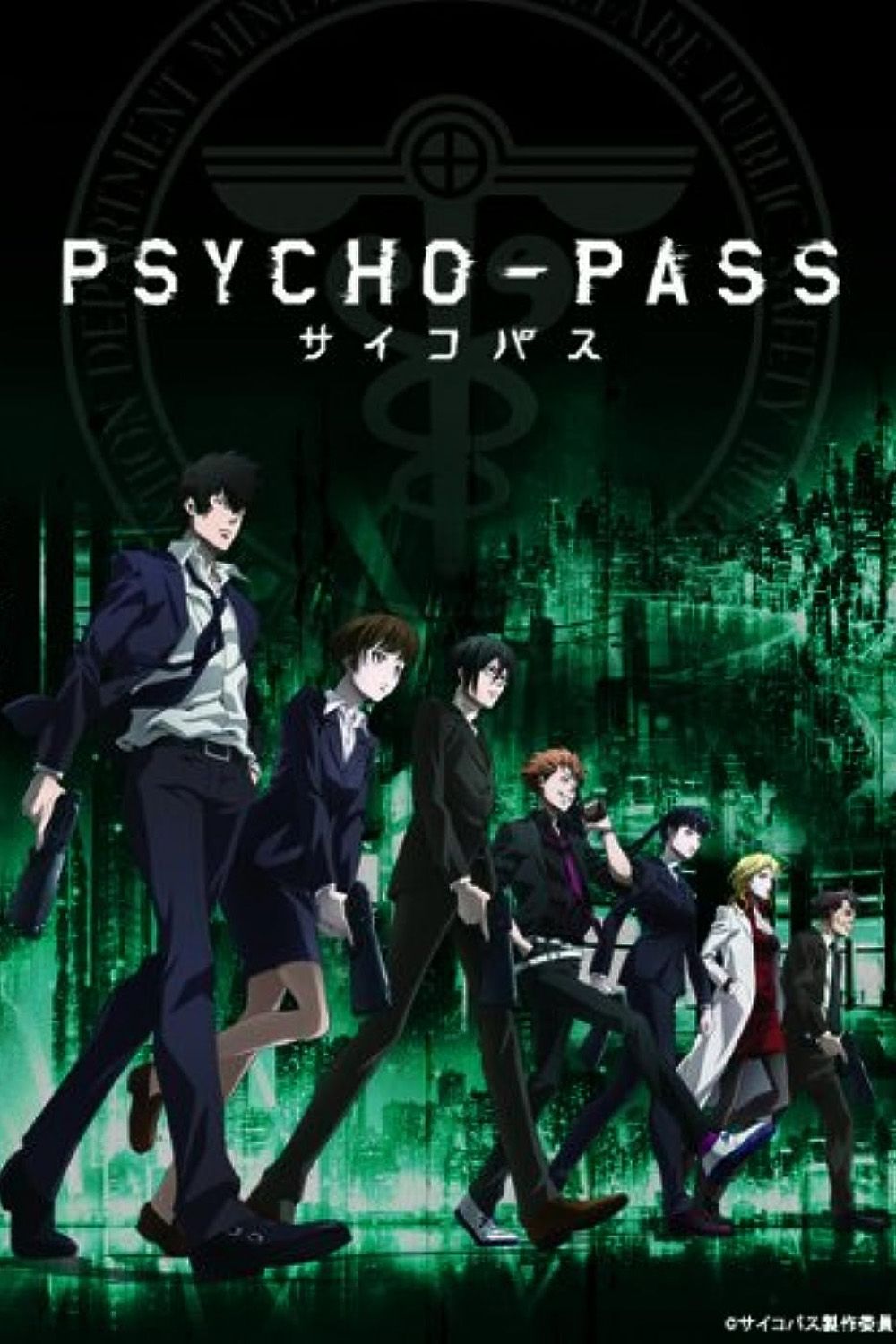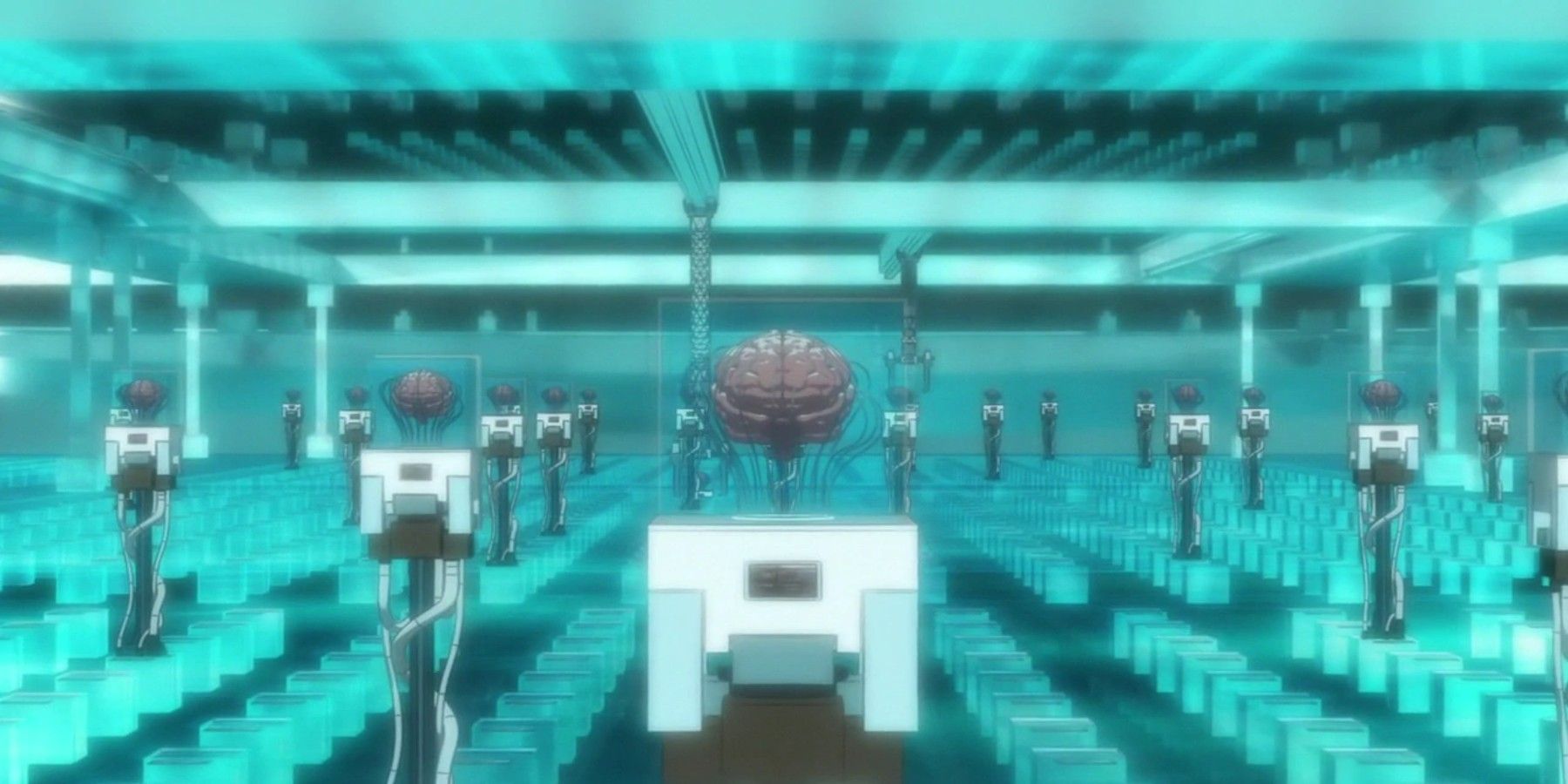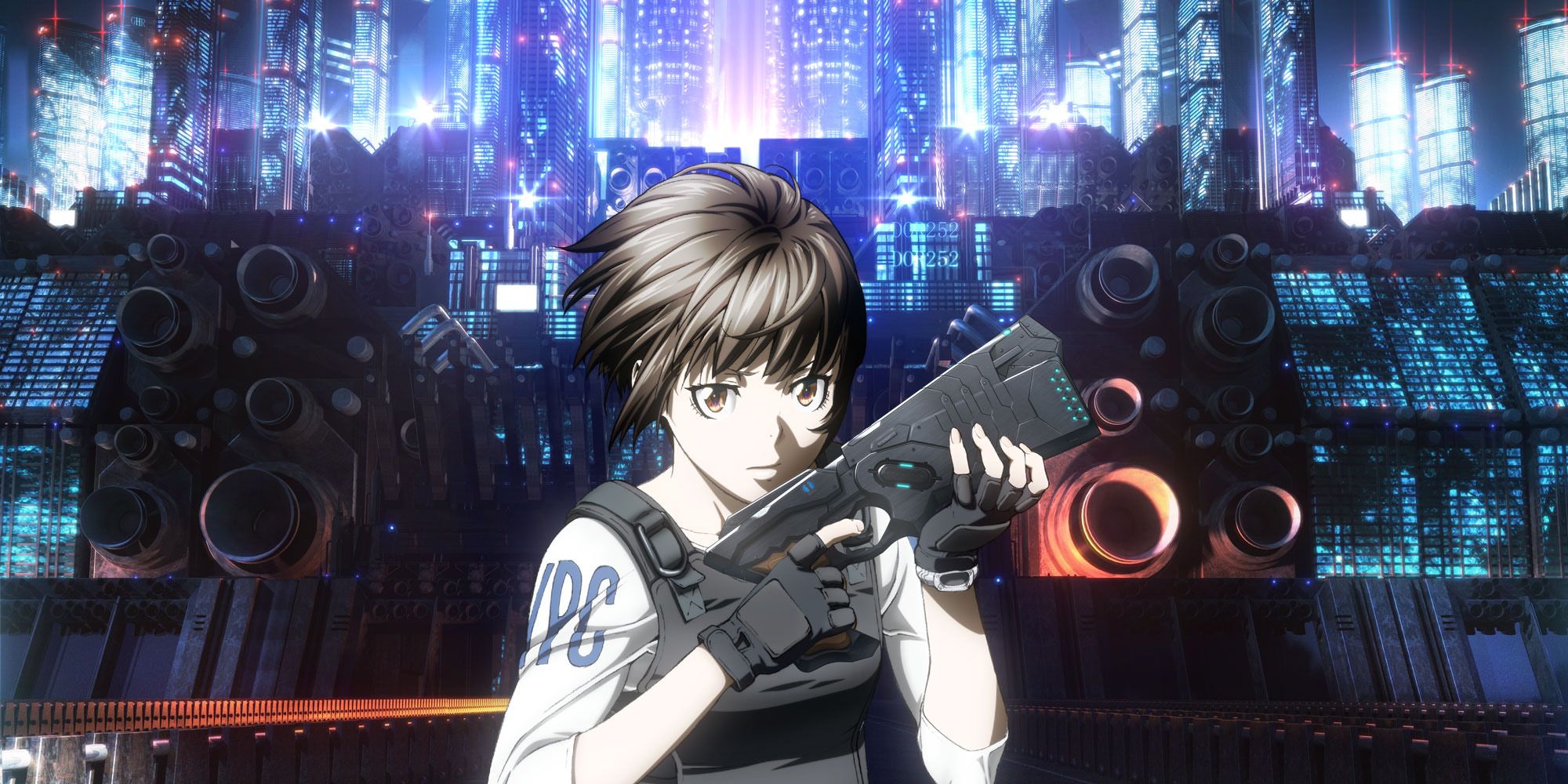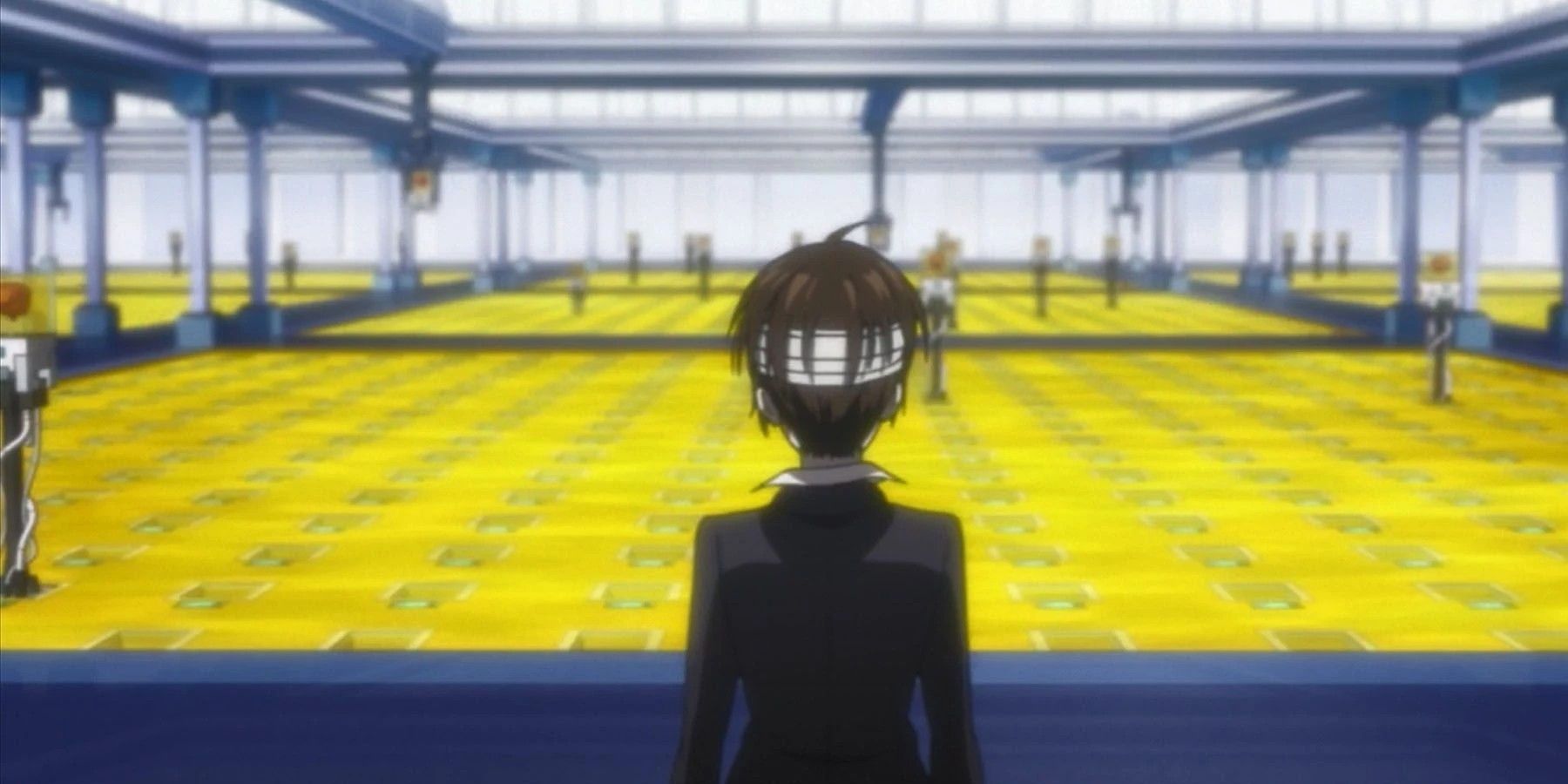Highlights
- Psycho-Pass's Sibyl System is inspired by Greek oracles, assessing mental states for crime coefficients.
- The system's reliance on constant monitoring creates a society of machine-like humans.
- The Delphic Sibyl, a famous ancient oracle, serves as a reference for the Sibyl System's accuracy and flaws.
Anime is a medium that enjoys a vibrant and multifaceted range of inspiration. From literature and other forms of entertainment media, to mythology, history and sport, anime is consistently making reference to other forms of storytelling.
In the case of the sci-fi action franchise Psycho-Pass, part of the inspiration can be found in Greek mythology. More specifically, the main system in the story that is capable of assessing one's mental state for signs of a propensity to commit violent crime is based on a well-known clairvoyant: the oracles. How is the Sibyl System in Psycho-Pass a reference to Greek myth? Let's find out.
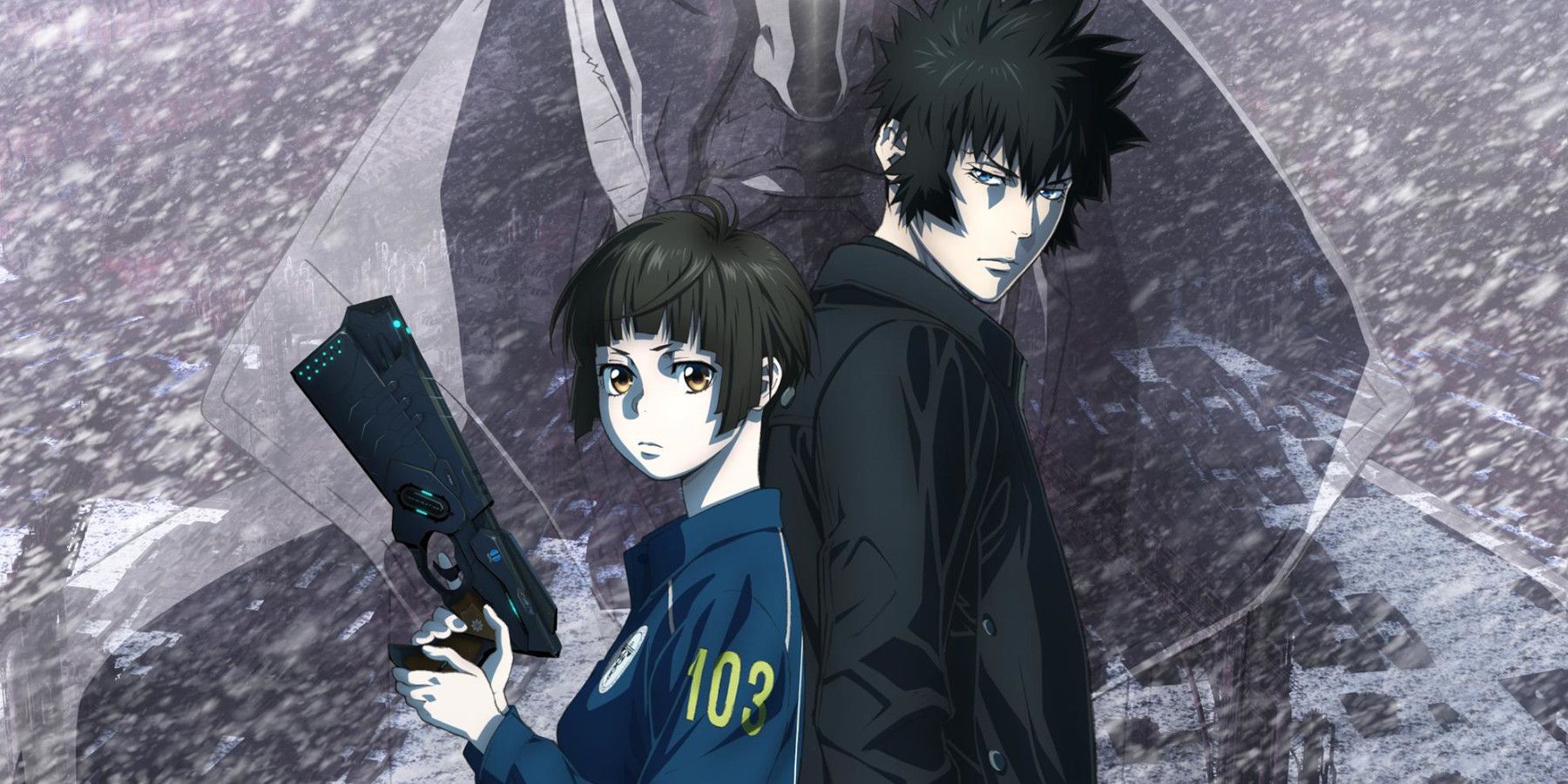
Psycho-Pass Providence Review: More Than Just A Missing Piece
The "missing link" in the Psycho-Pass story certainly fills in the blanks but is Providence truly a worthy continuation for the fans?
The Art of Clairvoyance
The Main Purpose of the System
Psycho-Pass is set in the late 22nd century, at a time when technological advancement has taken society to entirely new heights. The main aspect in which this has happened is through the invention of the Sibyl System, a biomechanical network that constantly measures the biometrics of Japanese citizens through a cymatic scan. The system then releases a numeric "Crime Coefficient", which is effectively a measure of an individual's overall mental state and propensity to commit violent crime.
Law enforcement officers who work for the Ministry of Welfare Public Safety Bureau's Criminal Investigation Department are given firearms that are connected to the Sibyl System and assess a target's crime coefficient to adjust the level of law enforcement accordingly. The firearms, known as Dominators, have two different settings, one to stun a target and the next to apply lethal force. As a result of the reliance of law enforcement on the assessment of the Sibyl System, police work has changed completely, and in the first season, a major flaw in the system is that it ironically has no way of applying judgment on those who exhibit genuine psychopathy as seen with the first major antagonist, Shōgo Makishima.
"Psycho-Pass" is a stylization of the Japanese pronunciation of the word "psychopath" and a portmanteau of "psycho" and "pass"; as in an official document or ticket showing that you have the right to go somewhere or use a particular form of transport. With the constant monitoring that the Sibyl System has brought, the system's contributions have made a society of machine-like humans who enact the will of this overseer. 18th-century English philosopher Jeremy Bentham, who was the founder of modern utilitarianism, came up with the concept of the Panopticon, an institutional building whose main feature is a central tower from which all subjects in the surrounding compound can be observed, with the context generally being a prison. While it's impossible for the observer to keep a keen eye on every single subject, the subjects themselves have no way of knowing if or when they are being watched, which makes them behave as if they are always being observed.
"The Sibyl, with frenzied mouth uttering things not to be laughed at, unadorned and unperfumed, yet reaches to a thousand years with her voice by aid of the god."
– Heraclitus, 500 B.C.E
The Oracles
How The System Got Its Name
The sibyls were prophetesses, better known as oracles (hence that one huge data company's name) in Ancient Greece. Oracles provide wise counsel, with their most famous job being clairvoyance or precognition. The sibyls would enter frenzied states and the words uttered by them in this state were considered to be divine messages. Perhaps the most famous sibyl is the Oracle of Delphi, also known as Pythia because sibyls were identified by the site of the temple at which they were based.
This Delphic Sibyl has been talked about from as far back as the 11th century B.C.E. The fact that the Sibyl System turns out to be a network of interconnected brains might be an interpretation of the passing down of sibyl duties from priestess to priestess. The relevance of the aforementioned Panopticon lies in the fact that the Sibyl System is the main guiding force in people's lives and can never be disobeyed.
From one's choice in work, to the very application of justice, the Sibyl System decides every aspect. As such, it follows the concept of sibyls as messengers of God. Of all the most famous sibyls, the Delphic Sibyl is the one thought to be the most accurate of them all, but on a general level, they were thought to be extremely accurate. Any inconsistencies were considered to be a misinterpretation of the prophecy and not a mistake of the prophetess.
It is possible that the reason for the seemingly-perfect Sibyl System's flaws, beyond the adage, that nothing is perfect, is that clairvoyant prophecies always have an aspect that makes understanding them tricky business. This is how characters like Makishima, who don't exhibit the same psychological tendencies as normal people, and therefore cannot be judged by normal standards. This major flaw is how the prophetess that is the Sibyl System gets things horribly wrong.
